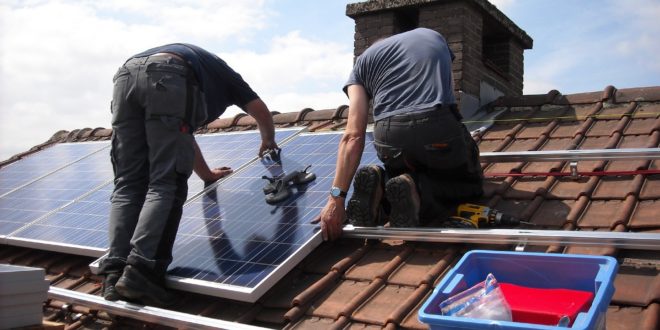Solar panels are an innovative part of energy production and consumption. They are cost-effective and help consumers have a better, cleaner impact on the environment. However, throughout the lifespan of solar panels, they become obsolete and must eventually go to waste. In this process, e-waste from the panels can be detrimental to the environment — and wasteful overall. To properly curb these negative effects, experts and lawmakers must take action soon.
An Introduction to Solar Panels
Solar panels are relatively new. They’ve only started gaining traction within the past 20 years or so. With increasing attention, decreasing costs and better sustainability, solar energy can continue holding its ground as a leader in energy production and efficiency.
The main selling point for photovoltaic (PV) panels is that they have strikingly low carbon emissions — which is a necessary change to fight the climate crisis.
Solar energy is progressive and powerful enough that it could overtake fossil fuels in the future. With wind energy by its side, too, solar is an unstoppable force. However, there is still the issue of e-waste.
Unfortunately, like most material things, solar panels decrease in functionality after a while. Though they have a good run, their waste can lead to environmental and health issues.
The Solar Panel Lifespan
Solar panels, while they are invaluable for the environment, do eventually reach their end-of-life (EOL). Usually, a PV panel reaches this state after 25 years — sometimes less, sometimes more. Regardless, since solar panels are relatively new to this world, there will be plenty that reach their EOL in the coming years.
When they become obsolete, manufacturers do away with them and leave them in landfills. This expulsion, though, is harmful and wasteful. Solar panels consist of mostly harmless materials, like glass. Others, though — like lead — are harmful to the environment. If lead leaches into the ground or nearby water supplies, it can disrupt ecosystems and cause health concerns.
The other paths for waste management, including recycling and proper disposal, are more expensive. Because of this, manufacturers and solar panel users often opt for landfills. This waste eventually adds up. Small solar farms of 5 kilowatts (kW) can consist of 20 panels — higher wattages will have many more.
As more panels start reaching the end of their lifespans, the world may find itself with a growing e-waste problem. It is then necessary to take proactive steps to combat this issue before it happens.
Solutions for Solar Panel Waste
Luckily for the renewable energy industry, various methods can decrease the wastefulness of obsolete PV panels.
Reusing the panels can be the first go-to option. Replacing parts or repurposing the panels for different setups is a useful technique to ensure fewer materials go to waste. This idea saves the entire panel itself from the scrapyard.
If repurposing the panel isn’t an option, then extracting the parts should be the next step. The materials themselves, like aluminum, silver, glass, precious metals and minerals, are invaluable for more solar panels and other innovative uses. As experts only extract high-purity materials, these substances are economically valuable and will remain reusable. Additionally, if manufacturers turn to better materials for manufacturing solar panels — anything that’s lead-free — then disposal will be less harmful.
Finally, progress will not happen quickly without the right legislation. Lawmakers must act now to implement regulations and guidelines for solar panel disposal. That way, the world won’t face high levels of PV panel waste in the future.
Less Waste, More Solar Power
With these solutions in mind, governments and manufacturers across the globe can ensure solar energy stays on top. With more regulations and better practices for repurposing and recycling solar-related waste, PV panels can continue their rise to popularity. The end goal for renewable power is to remain as sustainable as possible and overtake fossil fuels. With less waste, solar energy can do just that.



